When it comes to losing weight, what you eat matters just as much as how much you eat. Whole foods, known for their natural state and lack of processing, play a crucial role in a successful weight loss journey. They’re packed with nutrients, keep you full longer, and provide your body with the fuel it needs without the extra calories that processed foods often carry. In this article, we’ll explore the top seven whole foods products that can help you shed those extra pounds while keeping you nourished and satisfied.
What Are Whole Foods?
Before diving into the specifics, it’s essential to understand what whole foods are. Whole foods are foods that are as close to their natural state as possible. They haven’t been refined, processed, or had any additives like preservatives or artificial flavors added. Think of fruits, vegetables, whole grains, and lean proteins that you could find at a farmer’s market. Unlike processed foods, whole foods retain their nutritional integrity, making them an excellent choice for anyone looking to improve their health and lose weight.
How Whole Foods Aid in Weight Loss
So, how do whole foods actually help with weight loss? The answer lies in their nutritional profile. Whole foods tend to have a high nutrient density but a low-calorie density. This means you can eat a larger volume of food without consuming a lot of calories, which is perfect for weight loss. They are also rich in fiber, which aids in digestion and helps you feel fuller longer. Moreover, the natural vitamins and minerals found in whole foods can boost your metabolism, giving you more energy to stay active and burn calories.
Criteria for Selecting Whole Foods for Weight Loss
Not all whole foods are created equal, especially when it comes to weight loss. Here’s what you should look for when choosing whole foods:
- Nutrient Density: Foods that are high in vitamins, minerals, and other nutrients but low in calories.
- Low-Calorie Count: Choose foods that provide volume and satisfaction without a lot of calories.
- High Fiber Content: Fiber is essential for digestive health and helps control appetite.
- Low Glycemic Index: Foods that don’t cause spikes in blood sugar levels, helping to control hunger and cravings.
1. Leafy Greens
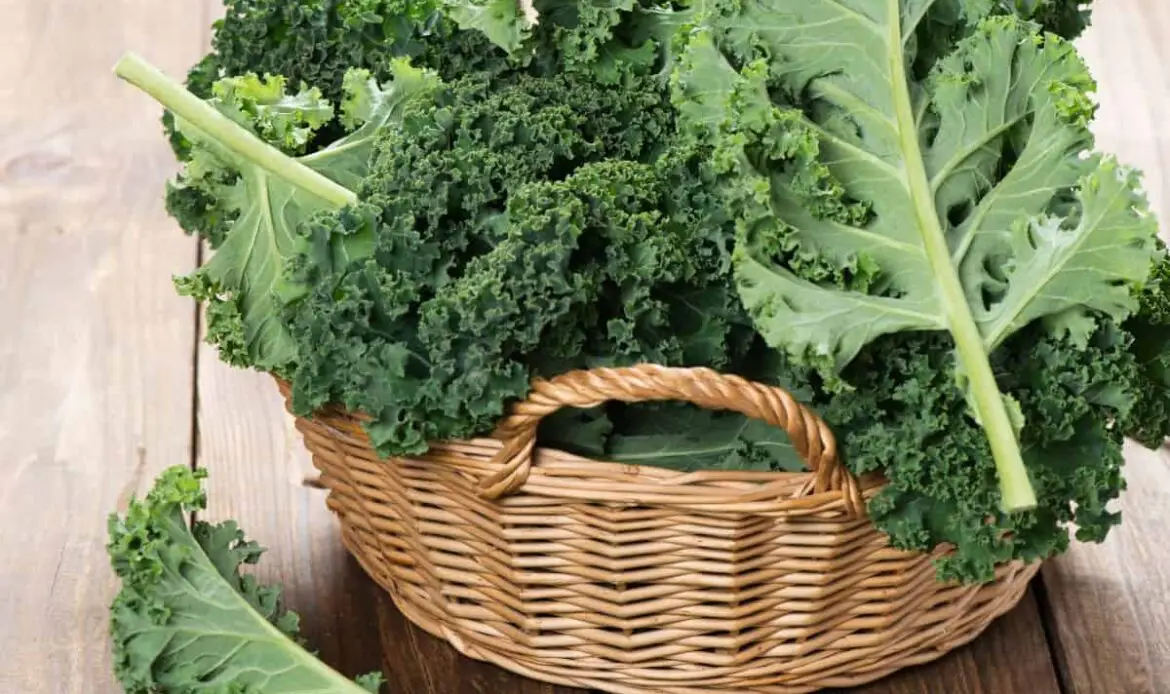
Leafy greens such as kale, spinach, and arugula are among the most effective foods for weight loss due to their incredible nutrient density and low calorie content. These greens are powerhouses of nutrition, offering a wide array of vitamins, minerals, and antioxidants that support overall health while helping you shed pounds.
One of the key benefits of leafy greens for weight loss is their very low calorie content. You can eat large quantities of these greens without consuming many calories, which makes them ideal for creating a calorie deficit—the foundation of any successful weight loss plan. The ability to consume a significant volume of food while keeping calorie intake low helps you feel satisfied and full, reducing the likelihood of overeating or reaching for calorie-dense, unhealthy snacks.
Leafy greens are also rich in dietary fiber, which plays a crucial role in weight management. Fiber adds bulk to your meals, helping to slow digestion and promote a lasting feeling of fullness. This can curb your appetite and reduce the temptation to consume extra calories throughout the day. Additionally, fiber supports healthy digestion and regular bowel movements, which are important for maintaining overall well-being during weight loss.
In addition to fiber, leafy greens are packed with essential vitamins and minerals, including vitamins A, C, K, and folate, as well as minerals like iron, calcium, and magnesium. These nutrients are vital for maintaining energy levels, supporting metabolic function, and ensuring your body operates efficiently as you lose weight. The antioxidants found in leafy greens also help protect your cells from oxidative stress and may reduce inflammation, both of which can support a healthier metabolism and enhance weight loss.
Another advantage of leafy greens is their versatility in the kitchen. They can be easily incorporated into a wide variety of dishes, making it simple to include them in your daily diet. Whether you’re adding kale or spinach to a smoothie, tossing arugula into a salad, or using these greens as a base for a nutrient-rich side dish, they can enhance both the flavor and nutritional value of your meals without adding many calories.
2. Berries
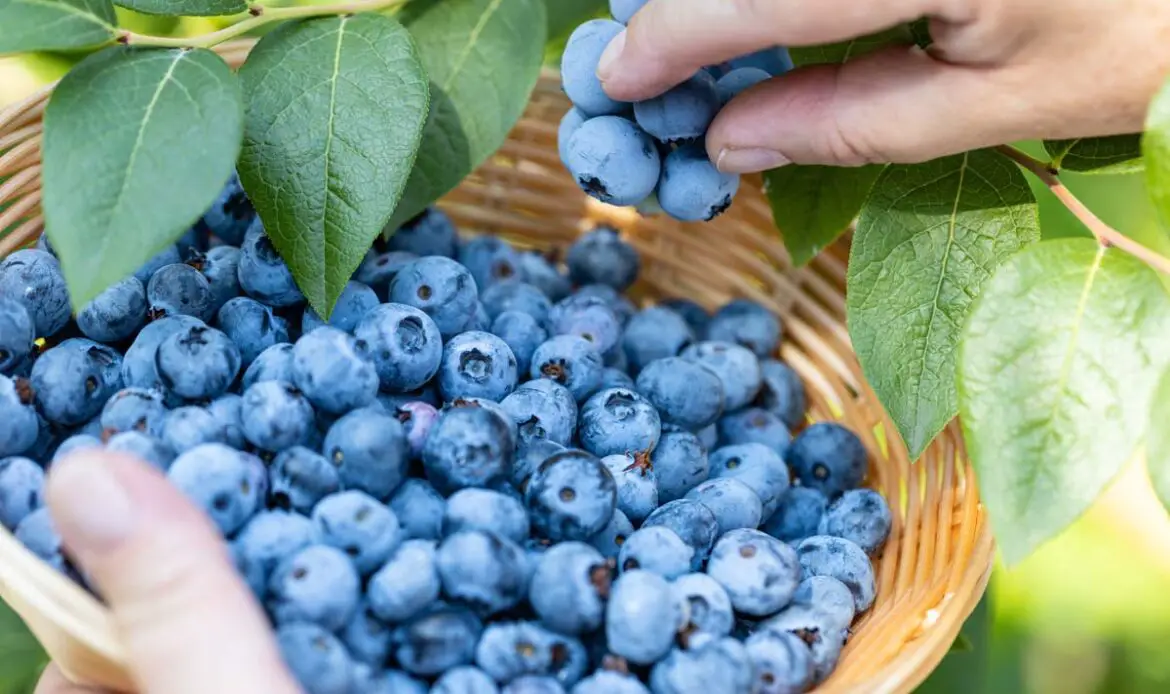
Berries, including blueberries, strawberries, and raspberries, are not only delicious but also highly beneficial for weight loss. These vibrant fruits are packed with essential nutrients while being low in calories, making them an ideal choice for those looking to shed pounds and maintain a healthy diet.
One of the key reasons berries are effective for weight loss is their low calorie content. You can enjoy a generous serving of berries without consuming a significant amount of calories, which helps you satisfy your sweet cravings without derailing your diet. This is especially important when trying to create a calorie deficit for weight loss.
Berries are also rich in dietary fiber, which plays a crucial role in weight management. Fiber adds bulk to your diet, helping you feel full and satisfied longer after eating. This can prevent overeating and reduce the temptation to snack between meals, making it easier to stick to your weight loss plan. The fiber in berries also supports healthy digestion and can help regulate bowel movements, further contributing to overall health during weight loss.
In addition to fiber, berries are loaded with antioxidants, particularly anthocyanins, which give them their vibrant colors. These antioxidants help protect your cells from damage and may even support weight loss by reducing inflammation and improving metabolic function. A healthy metabolism is essential for effective weight management, as it helps your body burn calories more efficiently.
Benefits Of Berries
Another significant benefit of berries is their low glycemic index (GI). Foods with a low GI are digested more slowly, leading to a gradual release of glucose into the bloodstream. This slow release helps maintain stable blood sugar levels, preventing the spikes and crashes that can trigger hunger and lead to overeating. By keeping blood sugar levels steady, berries help control appetite and make it easier to manage portion sizes.
Berries are incredibly versatile and can be easily incorporated into your diet in various ways. They make a perfect snack on their own, providing a sweet and satisfying option that won’t compromise your calorie goals. You can also add them to smoothies for a nutrient-packed boost, or use them as a topping for yogurt, oatmeal, or salads to enhance both flavor and nutritional value.
Incorporating berries into your daily meals is a delicious and effective strategy for supporting weight loss. Their combination of low calories, high fiber, antioxidants, and low glycemic index makes them a powerhouse food that helps you stay full, satisfied, and on track with your weight loss goals while enjoying the natural sweetness and health benefits they offer.
3. Whole Grains
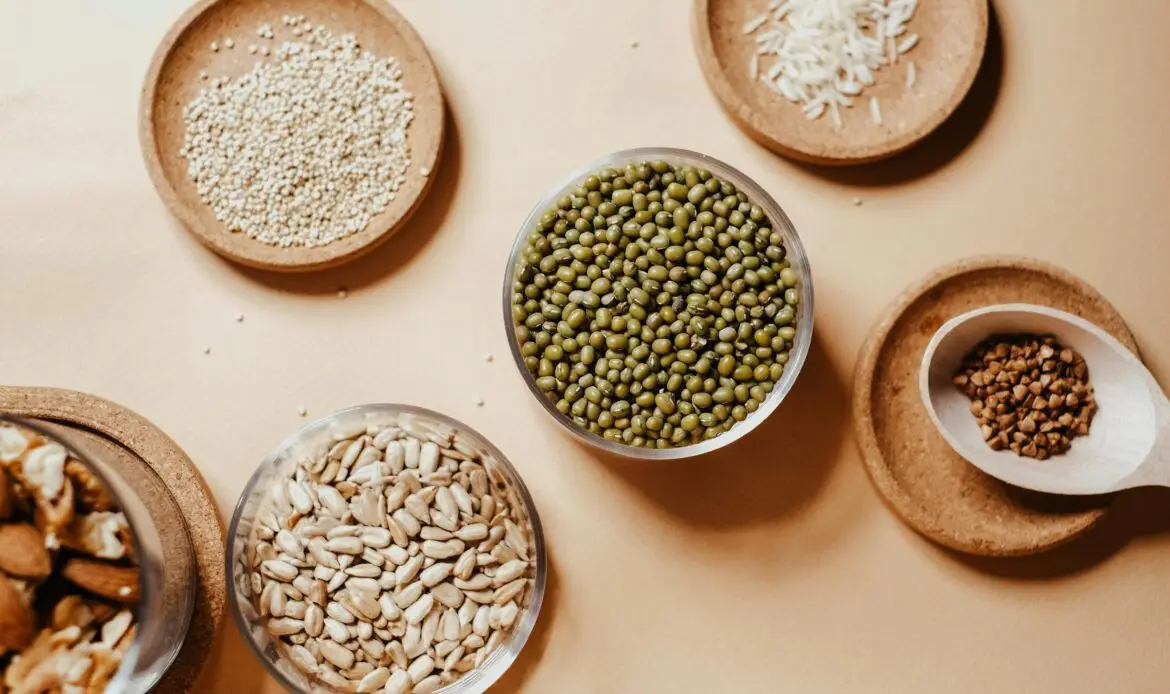
Whole grains, such as quinoa, brown rice, and oats, are excellent choices for weight loss due to their rich content of complex carbohydrates, fiber, protein, and essential nutrients. Unlike refined grains, which have been stripped of their bran and germ during processing, whole grains retain these components, making them far more beneficial for weight management.
One of the primary reasons whole grains are effective for weight loss is their high fiber content. Fiber adds bulk to your meals, helping you feel fuller for longer periods. This extended feeling of fullness reduces the likelihood of overeating or snacking between meals, which is crucial for maintaining a calorie deficit—the key to weight loss. The fiber in whole grains also supports healthy digestion and can help prevent constipation, another benefit when managing your weight.
In addition to fiber, whole grains provide a moderate amount of protein, which is essential for preserving muscle mass during weight loss. While whole grains may not have as much protein as meat or legumes, the protein they do contain contributes to overall satiety and helps stabilize blood sugar levels. This helps prevent the blood sugar spikes and crashes that can trigger hunger and cravings, making it easier to stick to a healthy eating plan.
Another advantage of whole grains is their ability to provide a steady source of energy. The complex carbohydrates in whole grains are digested more slowly than the simple carbohydrates found in refined grains. This slow digestion process leads to a gradual release of glucose into the bloodstream, providing a consistent energy supply that helps prevent energy dips and the accompanying hunger that often leads to overeating.
Whole grains are also nutrient-dense, providing essential vitamins and minerals such as B vitamins, iron, magnesium, and antioxidants. These nutrients support overall health and can enhance your weight loss efforts by improving energy levels, supporting metabolism, and ensuring your body functions optimally while you lose weight.
Incorporating whole grains into your meals is easy and versatile. Quinoa, for example, can be used as a base for salads, paired with vegetables and lean protein for a balanced meal. Brown rice is a satisfying side dish that can accompany a variety of main courses, while oats are a popular choice for breakfast, providing a hearty start to the day that keeps you full until your next meal.
By choosing whole grains over refined grains, you not only support your weight loss goals but also improve your overall nutritional intake, leading to better health and more sustainable weight management.
4. Lean Protein Sources
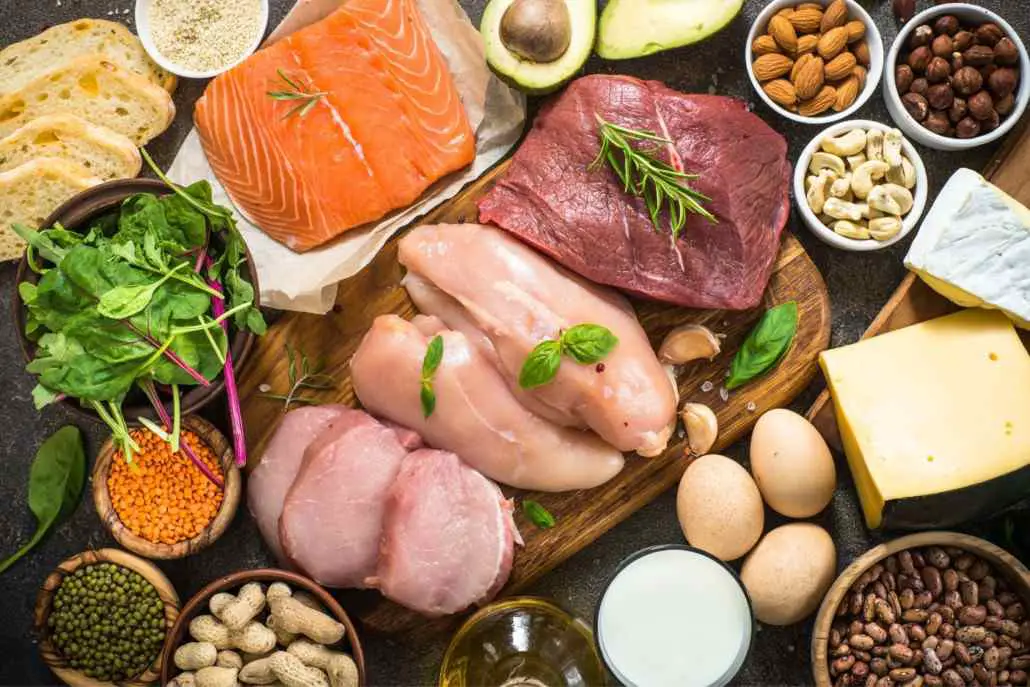
Protein is a vital component of any successful weight loss plan due to its ability to boost metabolism, preserve muscle mass, and keep you feeling full and satisfied. When you’re trying to lose weight, maintaining a high protein intake is essential for several reasons.
Firstly, protein has a high thermic effect, which means your body burns more calories digesting protein than it does with fats or carbohydrates. This increase in calorie expenditure can help enhance your metabolism, making it easier to create the calorie deficit needed for weight loss.
Secondly, one of the challenges of losing weight is that, as you shed fat, there’s a risk of also losing muscle mass. However, consuming sufficient protein helps preserve lean muscle tissue, which is important for maintaining strength, energy levels, and a healthy metabolism. The more muscle mass you retain, the more calories your body continues to burn at rest, which supports ongoing weight loss and helps prevent weight regain.
Lean protein sources like chicken breast, turkey, and tofu are particularly effective for weight loss because they provide a high amount of protein with relatively few calories. This means you can eat enough to feel satisfied without consuming excess calories. When you feel full and satisfied after a meal, you’re less likely to experience hunger pangs that lead to unhealthy snacking or overeating later in the day.
Including lean proteins in every meal also helps stabilize blood sugar levels, which is crucial for managing appetite and cravings. Stable blood sugar levels prevent the spikes and crashes that can trigger hunger and lead to poor food choices, making it easier to stick to a healthy eating plan.
Incorporating lean proteins into your diet is straightforward and versatile. Grilled chicken breast or turkey can be added to salads, wraps, or grain bowls, while tofu can be used in stir-fries, soups, or as a plant-based protein substitute in various dishes. By ensuring that lean protein is a part of every meal, you not only support your weight loss goals but also create balanced, satisfying meals that help you stay on track with your diet.
5. Nuts and Seeds
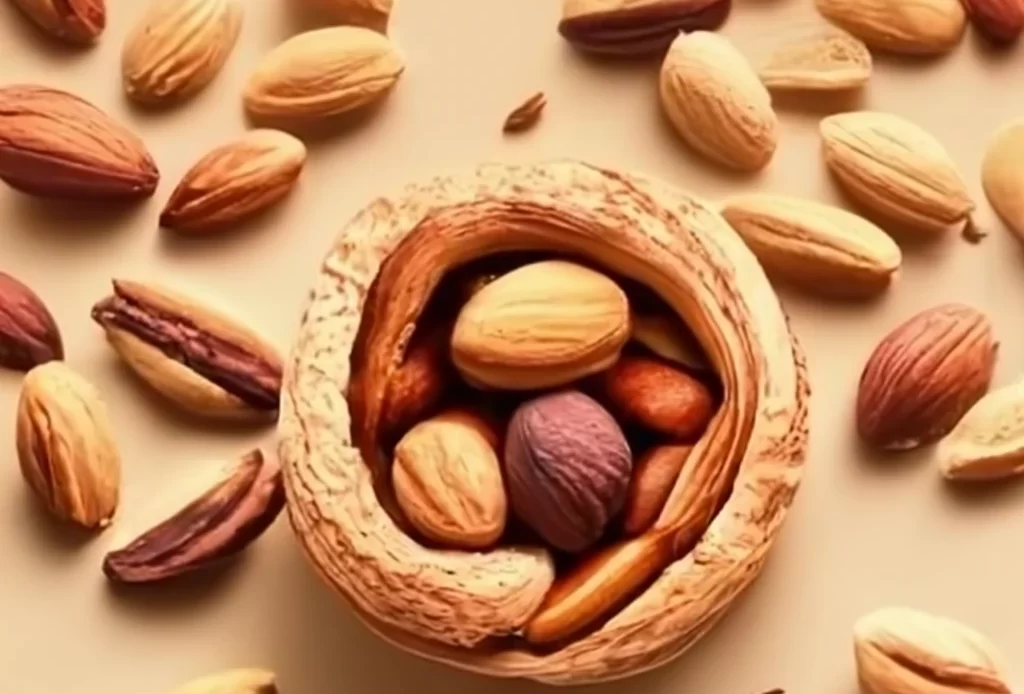
Nuts and seeds, such as almonds, chia seeds, and flaxseeds, are nutrient-dense foods that can play a beneficial role in weight loss, despite their higher calorie content. Their unique combination of healthy fats, protein, and fiber makes them a powerful tool for managing hunger and supporting overall weight management.
Healthy fats, particularly the unsaturated fats found in nuts and seeds, are crucial for promoting satiety, the feeling of fullness that prevents overeating. When you include these healthy fats in your diet, they help slow down digestion, which means you stay full longer after a meal. This extended feeling of fullness can help reduce overall calorie intake throughout the day, making it easier to maintain a calorie deficit necessary for weight loss.
In addition to healthy fats, nuts and seeds are rich in protein, which is essential for preserving muscle mass during weight loss. Protein also has a high thermic effect, meaning your body uses more energy to digest protein than it does for fats or carbohydrates. This can slightly boost your metabolism and help your body burn more calories, contributing to weight loss.
Fiber is another key component in nuts and seeds. The fiber content not only aids in digestion but also helps stabilize blood sugar levels. By preventing spikes and crashes in blood sugar, fiber helps control hunger and reduces the temptation to snack on unhealthy foods. This can be particularly helpful in managing cravings and preventing overeating, which are common challenges in weight loss.
However, because nuts and seeds are calorie-dense, portion control is essential. A small handful, roughly 1 ounce or about 28 grams, is usually enough to provide the nutritional benefits without adding too many calories. This modest portion can effectively curb hunger and provide you with essential nutrients, including vitamins, minerals, and antioxidants, without jeopardizing your weight loss goals.
6. Legumes
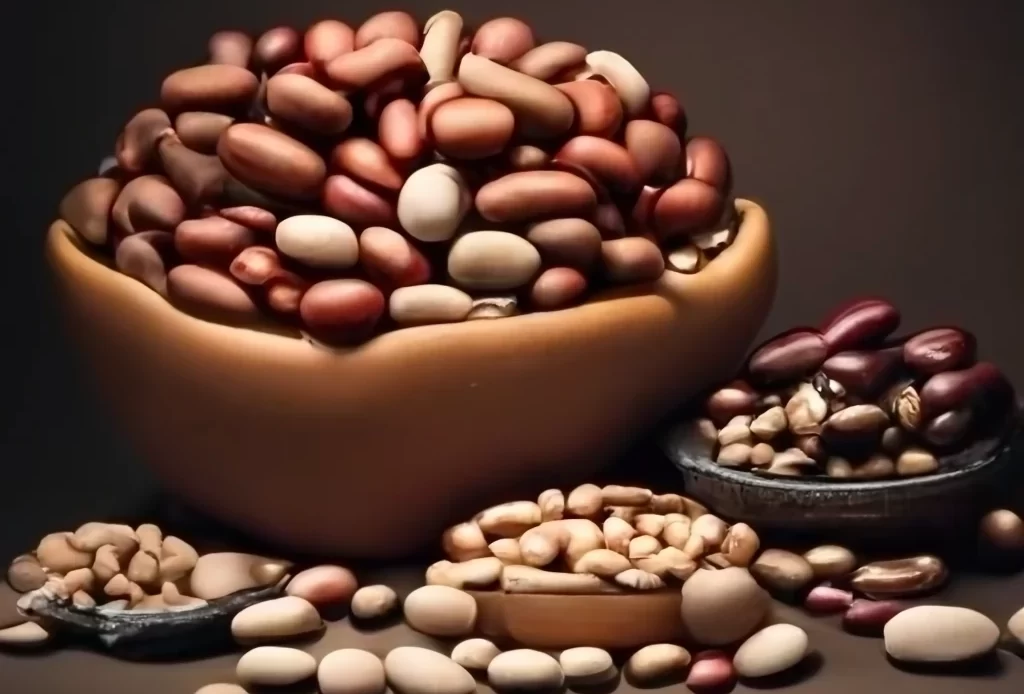
Legumes, including lentils, chickpeas, and black beans, are powerful foods for weight loss due to their unique nutritional profile. They are rich in both protein and fiber, two nutrients that play significant roles in managing weight.
Protein is essential for maintaining muscle mass, especially when you’re trying to lose weight. It also has a high thermic effect, meaning your body burns more calories digesting protein compared to fats or carbohydrates. This can contribute to a higher overall calorie burn, aiding in weight loss.
Fiber, on the other hand, slows down digestion and helps stabilize blood sugar levels. This slow digestion process keeps you feeling full for longer periods, reducing the likelihood of overeating or snacking between meals. The high fiber content in legumes also promotes healthy digestion and prevents constipation, which can be a concern during weight loss.
Another advantage of legumes is their low glycemic index (GI). Foods with a low GI are digested more slowly, leading to a gradual rise in blood sugar levels. This helps prevent spikes and crashes in blood sugar, which can trigger hunger and lead to overeating. By keeping blood sugar levels steady, legumes help you stay satisfied and control your appetite more effectively.
Legumes are also low in fat, making them a calorie-efficient food. You can eat a substantial portion without consuming excessive calories, which is crucial for creating the calorie deficit needed for weight loss.
Moreover, legumes are incredibly versatile. They can be added to a wide variety of dishes, from soups and salads to stews and side dishes. You can even make them the star of your meal with dishes like chili, hummus, or veggie burgers. This versatility ensures that you can enjoy a variety of flavors and textures while staying on track with your weight loss goals.
Incorporating legumes into your diet is a smart, satisfying, and effective way to support your weight loss journey while also enjoying nutrient-rich, flavorful meals.
7. Cruciferous Vegetables
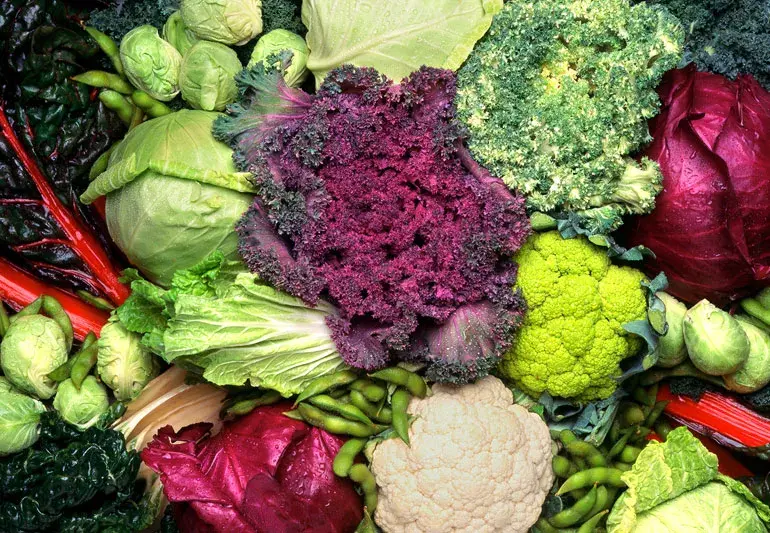
Cruciferous vegetables, such as broccoli, cauliflower, and Brussels sprouts, are excellent allies for weight loss due to several key factors. First, they are very low in calories, allowing you to eat a generous portion without consuming a large number of calories. This makes it easier to create a calorie deficit, which is essential for losing weight.
These vegetables are also high in dietary fiber, which is crucial for weight loss. Fiber slows down digestion and adds bulk to your meals, helping you feel full and satisfied for longer periods. This means you’re less likely to overeat or snack between meals, which can help reduce your overall calorie intake.
Additionally, cruciferous vegetables contain compounds like glucosinolates and isothiocyanates, which may support fat loss by boosting metabolism. These compounds can help your body burn calories more efficiently, further aiding in weight loss efforts.
The filling nature of these vegetables also means that when you include them in your meals, you’re less likely to overconsume other, more calorie-dense foods. This helps you control portion sizes and manage your weight more effectively.
Incorporating cruciferous vegetables into your diet through methods like roasting, steaming, or adding them to stir-fries is a delicious and satisfying way to support weight loss while still enjoying flavorful, nutrient-rich meals.
Common Mistakes to Avoid When Eating Whole Foods for Weight Loss
While whole foods are a healthy choice, it’s still possible to make mistakes when trying to lose weight. One common mistake is overeating healthy foods, thinking that just because they’re healthy, portion sizes don’t matter. Another mistake is ignoring portion sizes altogether. Even healthy foods can contribute to weight gain if consumed in large quantities. Finally, it’s crucial to maintain a balanced diet—relying too heavily on one type of food can lead to nutritional imbalances
.
Over-reliance on Whole Foods
While whole foods are beneficial, relying solely on them without considering overall caloric intake can hinder weight loss. Balance is key.
Ignoring Overall Caloric Intake
Even healthy foods can contribute to weight gain if eaten in excess. Pay attention to your total calorie consumption.
Not Considering Food Preparation Methods
How you prepare whole foods matters. For example, frying nuts or adding excessive dressings can negate their health benefits.
Incorporating whole foods into your diet is one of the best ways to achieve sustainable weight loss. These nutrient-dense foods not only help you shed pounds but also provide your body with the essential nutrients it needs to function at its best. By focusing on leafy greens, berries, whole grains, lean proteins, nuts, seeds, legumes
